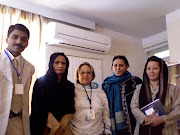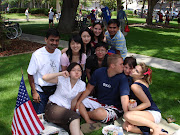Human smuggling and trafficking are matters of increasing concern to the South Asian states. Despite successful raids to curb the flow of illicit immigrants to western countries, a large number of persons from SAARC countries continue to arrive in Sri Lanka with the idea of migrating to western countries illegally with the help of local smugglers who have links with international human smuggling rings. Recent interceptions of Sri Lankan vessels attempting to smuggle people to Italy have highlighted the increasing sophistication of people-smuggling operations, and the involvement of organized crime groups in this activity. This has alerted the Interpol to assist the Sri Lankan Police to help curb this menace. The problem has become so acute that the Sri Lankan CID has set up a special branch to deal with anti-human smuggling operations and sought the assistance of the Interpol in Egypt to help curb these activities.
In a pre-dawn raid conducted on three hotels at Kirinda and in Tissamaharama areas during last month (March), about 112 Indians and 6 Pakistani nationals and three hotel managers were arrested by a team of CID officers who were suspected of forfeited passports. Although the suspects had arrived in Sri Lanka with valid passports the CID sleuths are checking the authenticity of these passports in light of 10,000 genuine passports being stolen or missing from Pakistani nationals. The Interpol Headquarters have also been alerted of the ring of Pakistani nationals involved in the cross-boarder human smuggling operations along with Sri Lankans. Most of them are smuggled to Western countries.
Recently the Sri Lankan courts sentenced 269 Sri Lankans to a term of one year RI and fined each Rs.50,000 and cases are yet to be filed against 15 to 20 agents who organized these foreign jaunts for these innocent youth. This act of surreptitious entry of people into alien nation facilitated by a third party is driven by two different goals: smuggling by friends and relatives who may assist illegal entry for personal reasons and smuggling for profit conducted by organized groups in a deliberate evasion of the immigration laws.
The United Nations in the Global Program Against Trafficking in Human Beings defines smuggling as the procurement of illegal entry of a person into a State of which the latter person is not a national with the objective of making a profit. In case of Sri Lanka, some pay, knowing that they are acting illegally; some pay, having been led to believe they are acting legally, but merely jumping the queue; some cannot afford to pay the full amount, and are willing to work off the debt in the new country; some are totally unaware of what is happening to them - they have either been kidnapped and sold, or in the case of some children, sold by their impoverished families, who were badly affected by the ethnic conflict.
By Resolution 53/111 of 9 December 1998, the General Assembly established an Ad Hoc Committee open to all States for the purpose of elaborating a new International Convention against Transnational Organised Crime. The focus is on trafficking in migrants and the prevention and suppression of smuggling of migrants by sea, with special attention being paid to the distinction between the criminalisation of trafficking and the protection of victims of that activity (UN General Assembly, 1999).
While not all undocumented migration is facilitated by organised crime, some operations epitomise the sophisticated end of criminal operations. In Sri Lanka, the modus operandi is to load the persons from a point along the western coast and make them undergo a rigorous journey for a period of three to four weeks before reaching Cairo in Egypt through the Suez Canal. The agents are mainly fish mudalalis who own large boats. In Cairo, the agents charge 600 US dollars from each to smuggle them to Italy. It is also reported that the LTTE has a part in such operations for organizing support to their cause.
A large number of persons from SARRC countries arrive in Sri Lanka due to liberalisation of visa procedures and many of them attempt to travel to western nations by boat illegally. In a bid to discourage human smuggling, the Italian government had even offered 1,000 lawful jobs to Sri Lankans according to the Italian Ambassador in Sri Lanka.? It is therefore necessary for the Sri Lankan government to frame maritime investigation and enforcement powers against foreign flag vessels. Necessary Bills should be passed which would help the coast watch officials to board and detain suspect vessels in international waters. Coast watch officers shall also be armed and can have increased powers of detention and search of people aboard vessels suspected of having committed offences against the Migration Act, the Customs Act and the Fisheries Management Act.












No comments:
Post a Comment